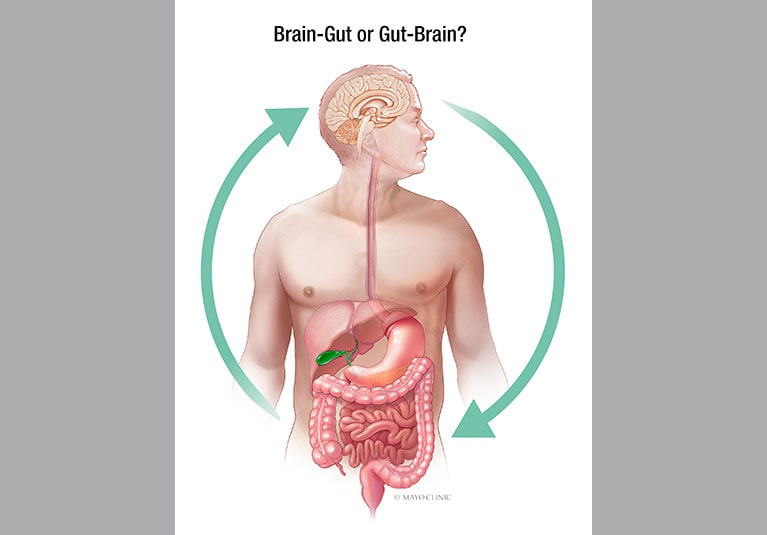
Unraveling the Mysteries of Functional Gut Disorders: Understanding the Causes and Treatment Options
Functional gut disorders are a common and frustrating problem for many people. These disorders, also known as functional gastrointestinal disorders, are conditions that affect the way the digestive system works without any apparent physical cause. While they are not life-threatening, they can have a significant impact on a person’s quality of life. In this article, we will explore the causes of functional gut disorders, the symptoms they can cause, and the treatment options available.
What are functional gut disorders?
Functional gut disorders are a group of conditions that affect the way the digestive system functions. These disorders do not have any obvious physical cause, such as inflammation or infection, but they can cause a variety of symptoms that can be very disruptive to a person’s daily life. Some of the most common functional gut disorders include irritable bowel syndrome (IBS), functional dyspepsia, and functional constipation.
The exact cause of functional gut disorders is not well understood, but researchers believe that a combination of factors, including genetics, diet, stress, and gut microbiota, may play a role in their development. It is also believed that abnormalities in the way the brain and gut communicate with each other may contribute to the symptoms of these disorders.
What are the symptoms of functional gut disorders?
The symptoms of functional gut disorders can vary widely from person to person, but some of the most common symptoms include:
– Abdominal pain or discomfort
– Bloating
– Changes in bowel habits, such as diarrhea, constipation, or a combination of both
– Excessive gas or flatulence
– Nausea
– Fatigue
– Anxiety or depression
These symptoms can be very disruptive to a person’s daily life, causing them to miss work, school, or social engagements. In some cases, they can also lead to feelings of embarrassment or shame, as they are often associated with issues that many people find difficult to talk about.
How are functional gut disorders diagnosed?
Diagnosing functional gut disorders can be challenging, as there is no specific test or procedure that can definitively identify these conditions. Instead, doctors typically rely on a combination of symptoms, medical history, and physical examination to make a diagnosis. In some cases, additional tests may be ordered, such as blood tests, stool tests, or imaging studies, to rule out other potential causes of the symptoms.
Because the symptoms of functional gut disorders can be similar to those of other, more serious conditions, it is important for people experiencing digestive issues to see a doctor for a proper evaluation. A doctor can help determine whether the symptoms are due to a functional gut disorder or another underlying condition that may require different treatment.
What are the treatment options for functional gut disorders?
Treatment for functional gut disorders typically focuses on managing symptoms and improving quality of life. There is no one-size-fits-all approach to treatment, as what works for one person may not work for another. However, some common treatment options include:
– Dietary changes: Many people find that certain foods can trigger symptoms of functional gut disorders. Keeping a food diary can help identify these triggers, so they can be avoided in the future. Some people may also benefit from following a low FODMAP diet, which restricts certain carbohydrates that can be difficult to digest.
– Stress management: Stress can exacerbate symptoms of functional gut disorders, so finding healthy ways to manage stress, such as through exercise, mindfulness, or therapy, can be helpful.
– Medications: There are a variety of medications that may be used to treat the symptoms of functional gut disorders, including antispasmodics, laxatives, and antidepressants.
– Probiotics: Some people find relief from their symptoms by taking probiotic supplements, which can help rebalance the gut microbiota.
In some cases, more invasive treatments may be necessary, such as nerve stimulation or surgery. However, these options are typically considered a last resort and are only recommended if other treatments have not been successful.
In conclusion, functional gut disorders are a common and frustrating problem for many people. These conditions can cause a variety of symptoms that can be very disruptive to a person’s daily life. While the exact cause of functional gut disorders is not well understood, researchers believe that a combination of factors may play a role in their development.
Diagnosing functional gut disorders can be challenging, as there is no specific test or procedure that can definitively identify these conditions. Instead, doctors typically rely on a combination of symptoms, medical history, and physical examination to make a diagnosis. Treatment for functional gut disorders typically focuses on managing symptoms and improving quality of life. There is no one-size-fits-all approach to treatment, and what works for one person may not work for another.
If you are experiencing symptoms of a functional gut disorder, it is important to see a doctor for a proper evaluation. A doctor can help determine whether the symptoms are due to a functional gut disorder or another underlying condition that may require different treatment. By working closely with your healthcare provider, you can develop a personalized treatment plan that addresses your specific needs and helps you live a healthier, more comfortable life.

















